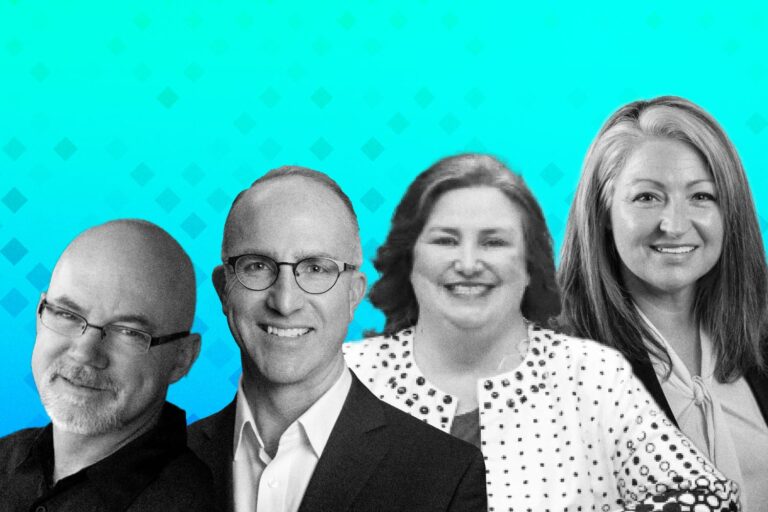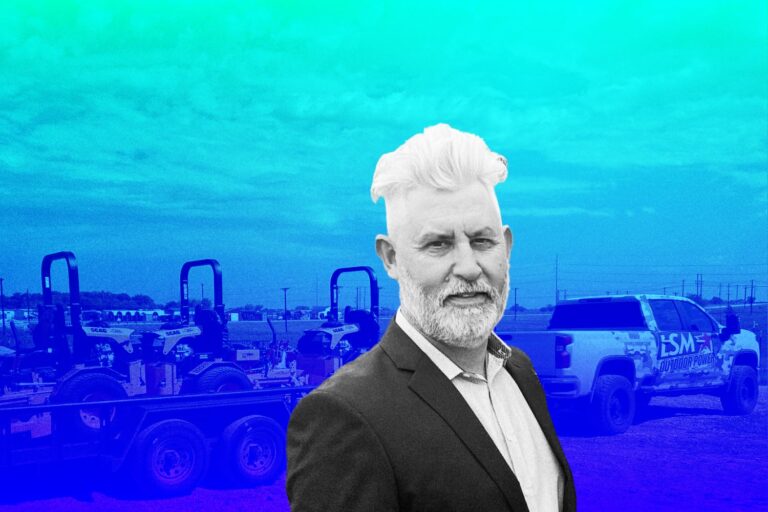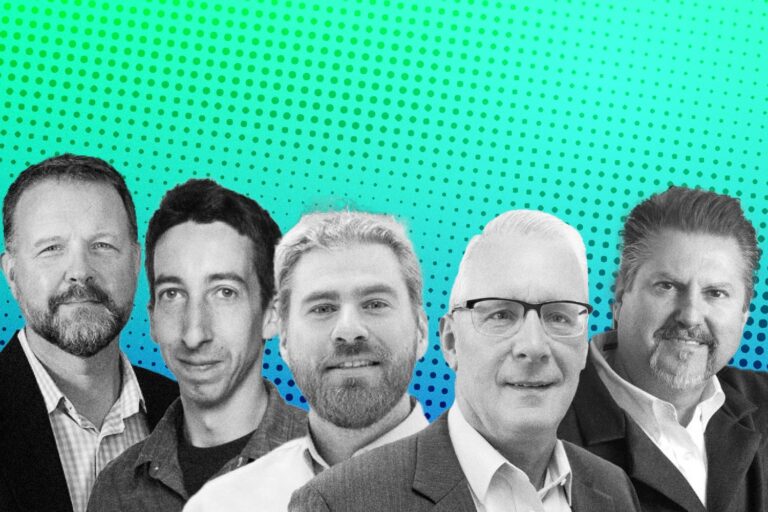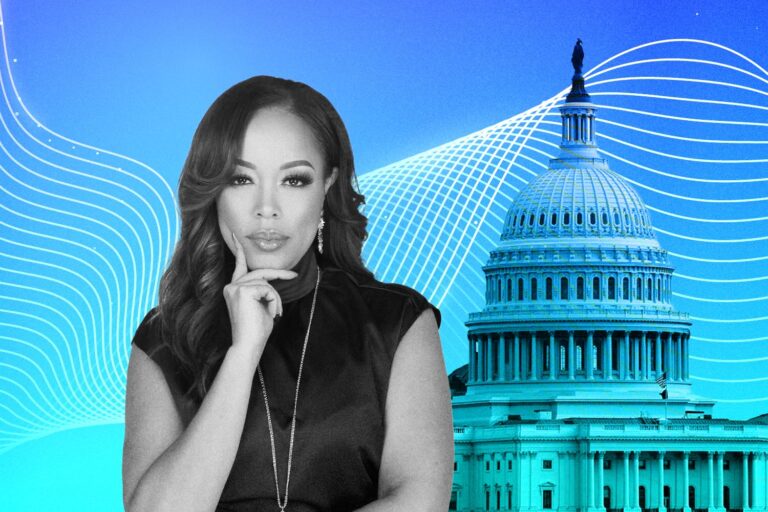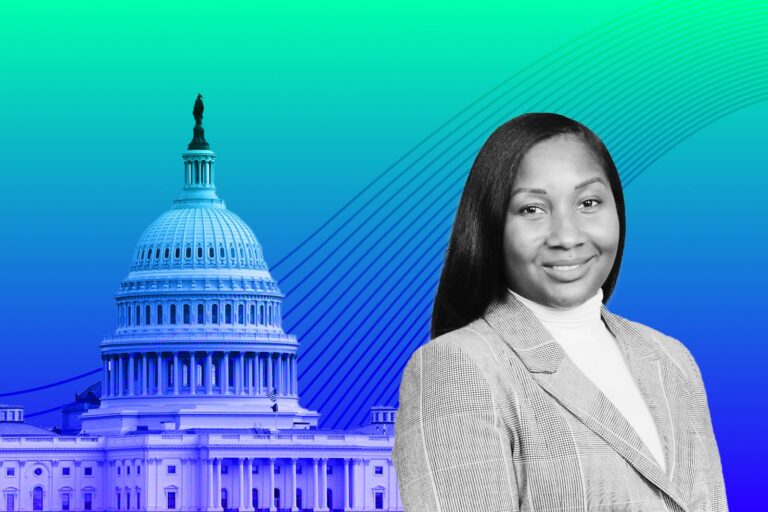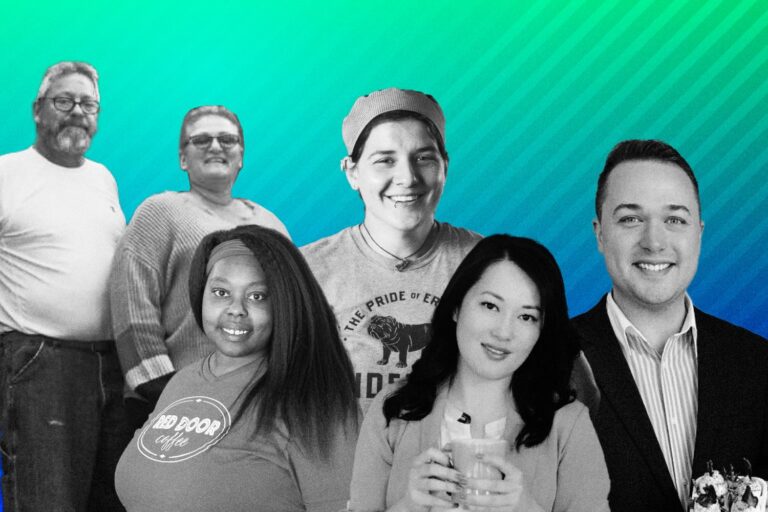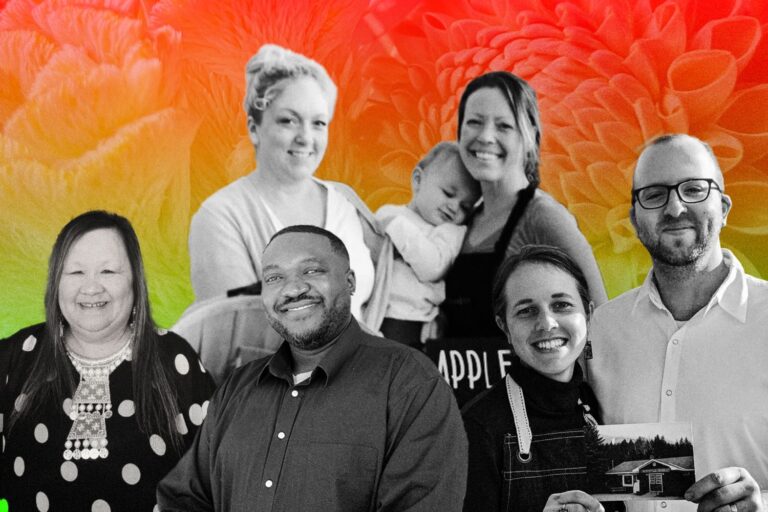Drybar’s Founder: From a Stay-At-Home Mom to a Millionaire
In the words of Hillary Clinton,“ Women are the largest untapped reservoir of talent in the whole world.” And if we can inspire this talent pool to get up & realize their dreams, our world would definitely be a very different place to live in.
A decade ago, full-time mom Alli Webb noticed a gap in the beauty market: there was no place that just focused on blow-drying hair. Thanks to her unruly curly hair, Alli Webb knows how a good blowout can completely change the way a woman feels about herself. In 2010, she persuaded her brother and her husband to help her launch Drybar, which focuses exclusively on blowouts. The story of how Alli Webb built her 100$ million franchise empire has left us many precious lessons in business.
#1. Never Settle for Less!
Before becoming a full-time mom, Webb had a career in PR (public relations) working with clients such as Faith Hill, Paul McCartney, and Keith Urban. As a professional hairstylist, Webb trained with Toni & Guy and spent several years working under the late, great John Sahag in New York City.
At that time, she met her husband – Cameron, who got a great advertising job in Los Angeles. Webb thought she wanted to be a stay-at-home mom with her two kids. Five years later, she realized she didn’t! “It was just to get out of the house for a couple of hours, and get away from the kids for a minute, make a little extra cash,” she shared.
“Our grandmothers’ generation used to get their hair ‘coiffed’ once a week and they wouldn’t touch it,” she said. “Somewhere along the way that behavior went away. I always say we kind of modernized that behavior and brought it back and made it affordable.” Her $40 blowout service proved a hit. When she became too busy to take on new clients, she had an inkling there was a market for a standalone blow-dry salon.
“That’s when the idea for a brick-and-mortar blowout-only shop started percolating for me,” she recalls, “I went to my brother, Michael Landau, and husband, Cameron Webb, and wanted their help and support. Despite the fact that they are both bald, they got it and were in!”
In 2008, Webb began a side business called Straight-At-Home which provided in-home blowouts on a referral basis in Los Angeles. When the business and its popularity quickly outgrew her capabilities as a one-woman show, Webb decided to expand and start Drybar with her brother Michael who spent almost 10 years at Yahoo! in numerous management roles, including Vice President of Brand Marketing. Husband Cameron Webb, an ad industry veteran, is behind the chain’s recognizable aesthetic, down to its buttercup-yellow and grey color scheme.
Recently, when asked how the immense growth and quick success of her business have impacted her family life, Webb explained: “I feel very happy and lucky. I love my life, and I love being a mom. The kids are a challenge sometimes. What stays with me, going from being a stay-at-home mom to a mom who works and travels—that’s been a big adjustment. But I love my kids seeing how hard we work, and that that is the key to success.”
#2. Niche Only Shows Up When You Pay Close Attention
Straight-At-Home – the referral-only in-home blowout business turned out to be a great idea. The level of interest eventually grew to the point where she realized there was a real hole in the market and decided to fill it. This is how many great companies are born: a passion project reveals a need desperate to be filled. The niche expertise and measured scaling by a savvy businesswoman or man can grow that specific product or service into something larger, but the key to growing it is understanding the details of your business.
“There was this huge gap in the market,” Webb says. “There were full-service salons way overcharging for blowouts, and there were Fantastic Sams, which were not a great experience.” Drybar synthesized the two: reasonably priced and luxurious in feel. To that last point, customers are always greeted with “Welcome to Drybar, it’s nice to see you” rather than “Do you have an appointment?” Drybar blowouts start in the front, rather than in the back, as beauty schools teach (to better tackle unruly cowlicks, and provide a better visual for the customer) – and each Drybar location’s management team has at least one stylist who can pinch-hit should another stylist call in sick.
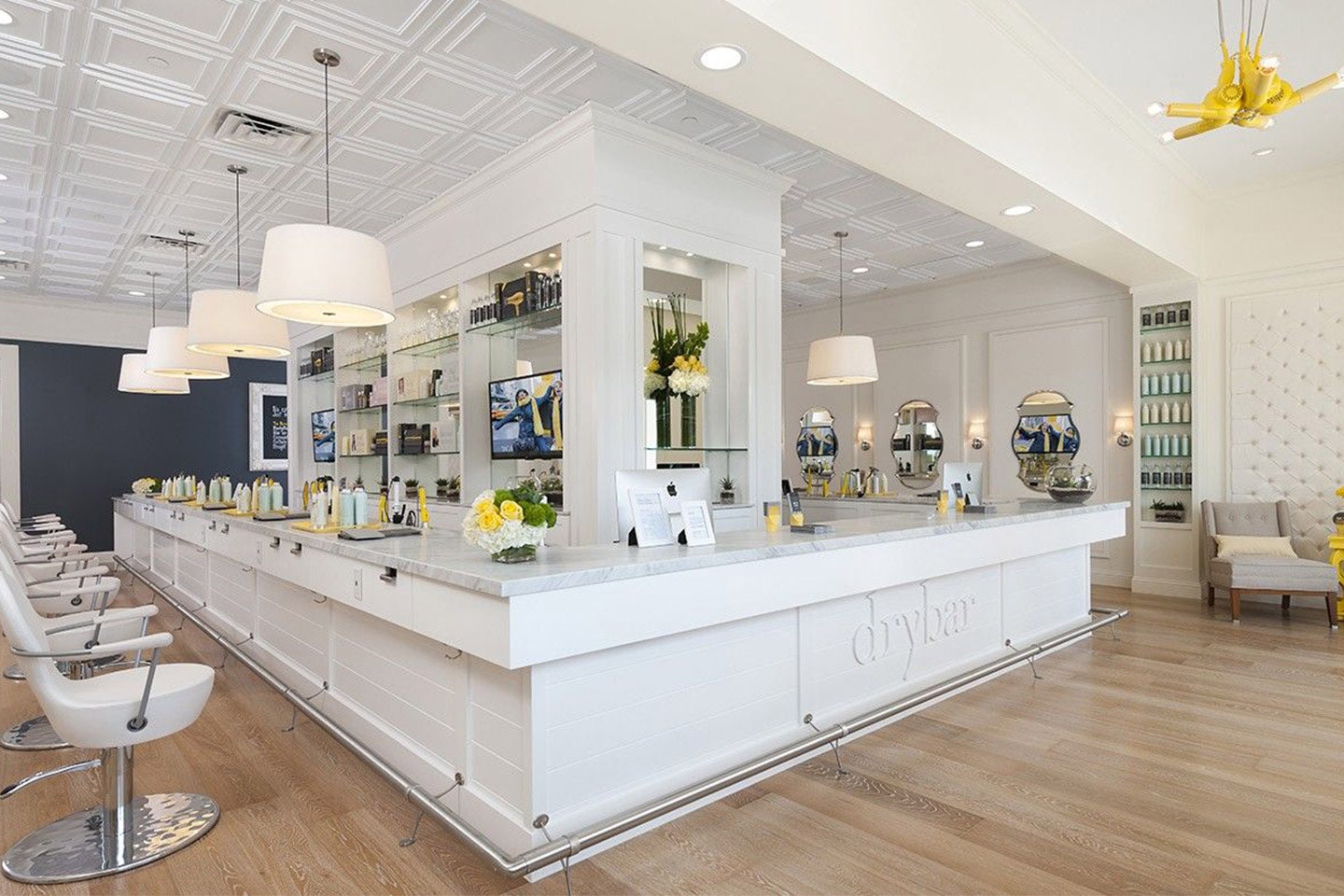
By ‘democratizing’ great hair, Drybar has transformed the culture of beauty. The days when women primped only for special occasions—senior prom, say, or a make-or-break job interview—are no more, and sleek, touchable curls are becoming an everyday indulgence. Many clients live blow-dry to blow-dry, scheduling their Spinning classes and personal hygiene around Drybar appointments
Part of Drybar’s appeal, besides consistent and affordable blowouts, there are thoughtful extras: from the wine or coffee offered on arrival alongside trays of mini cookies to the subtitled chick flicks playing on flat-screens, their sound drowned out by the drone of hair dryers.
Webb traces this customer service know-how back to a childhood spent sweeping the floors of her family’s small chain of women’s sportswear stores at strip malls in South Florida retirement communities. “My dad had chairs set up at the front for the men with newspapers and bagels and orange juice,” she said. “It was pretty genius.”
“I do believe, very humbly, that there’s a secret sauce that we have,” Webb said. “I think that the fact that I have spent basically my lifetime perfecting blowouts on myself, on my friends, in salons: all of that knowledge is so heavily infused into the business.”
#3. Know Your Shortcomings
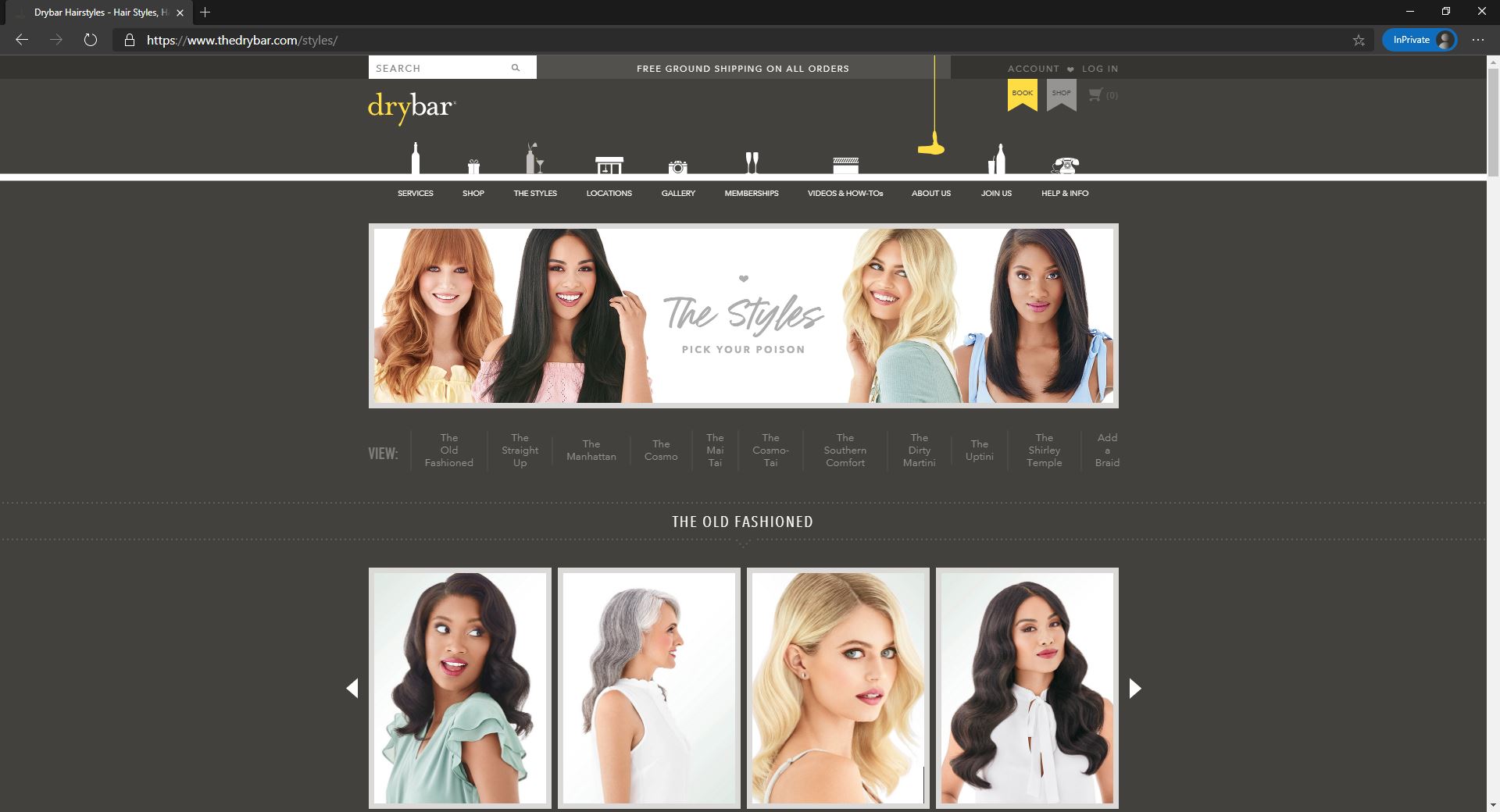
With her PR background (as well as her husband’s), Alli Webb knew the importance of branding in the beauty space and worked closely with Josh Heitler, the principal of Lacina Heitler Architects, a boutique architectural firm based in New York. When they set up their first shop in Brentwood, Los Angeles, they didn’t have enough capital to afford his services so they gave him equity in the company. Luckily, they did not dilute their shares too much and the first store was such a success that after a year they did a family and friends round of fundraising, bringing in $2.5 million.
However, once Drybar hit around eight stores, Webb and her family knew they could no longer go it alone. They sought out private equity investors, including Boston-based Castanea Partners, who put in $16 million in 2012 and contributed to a $20 million round in 2014.

As Drybar grew, Webb hired industry experts, including a new CEO in John Heffner – former CEO of nail polish giant OPI, and president of retail Denyelle Bruno – who’d worked at Apple. “It’s never easy as a founder to trust other people with parts of your business. I still want to get my hands dirty. But you have to recognize that sometimes you need someone else. Michael was that person for me first. Now it’s John.”
“We just needed help,” Webb said. “We didn’t know how to expand a business. As an entrepreneur, I had a vision. But opening up all these stores, having thousands of employees, and millions of customers, it’s overwhelming.” She expanded the scope of the brand at this point—growing the blow out exclusive bar into a brand that encompassed hair styling products like dry shampoo and a lightweight bright yellow blow dryer.
Since then, her reputation and business have exponentially grown. In 2013, Alli Webb was named number 33 on Fortune Magazine’s 40 under 40, and the business had brought in over $40 million in revenue. Entrepreneur Magazine named Drybar one of the 60 brilliant ideas of 2010.
Alli Webb’s story holds lessons for all entrepreneurs and exemplifies the common refrain on Shark Tank: Keep it simple, stick to what you’re good at, scale at a measured pace, and don’t expand until you have the infrastructure to support it. Also, Alli Webb offered crucial advice for aspiring entrepreneurs that many people who pitch on Shark Tank can benefit from: “Recognize your strengths and bring in people who know the things you don’t.”
#4. Hyperfocus On Details: The Only Secret Sauce That Can’t Be Copied
Many of the early challenges of building Drybar, admits Webb, came down to her desire for control. She and her co-founders’ obsession with creating a perfect “Drybar experience” is arguably what made the distinctive yellow salons successful – the $100 million company now has nearly 150 salons and Helen of Troy acquired its products business for $255 million in January. But maintaining that kind of control also took a lot of effort.
Webb related how she used to go to every Drybar location and make sure that the “bartenders” (a.k.a. receptionists) greeted people properly. That meant not asking whether people walking in the door had an appointment, a greeting that Webb found too confrontational. She wanted the bartenders to be immediately warm and welcoming – to make everyone who walked into a Drybar feel like they belonged there. “Everything in Drybar is very intentional,” she says.
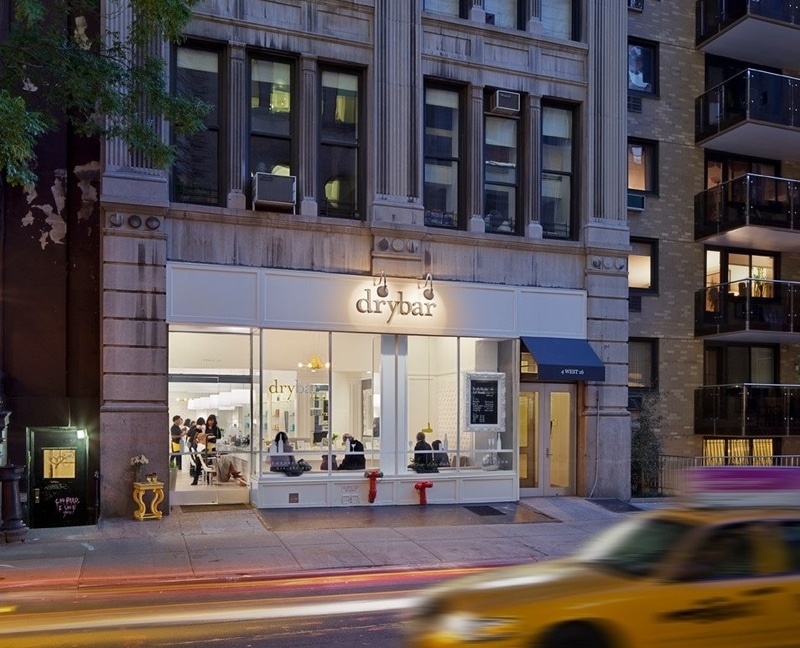
There were times when the co-founders’ obsession with a consistent experience in every shop complicated matters. “I didn’t want stylists to bring in their own products. I wanted a uniform look, for all of our products, tools, and brushes to be the same. I wanted our clients to be Drybar clients and to come in for the Drybar experience,” says Webb. That made sense from a branding perspective, but it turned out that the standard hair dryer cord on the dryers that Webb ordered for the first Drybar location weren’t long enough to reach around clients completely – which meant that stylists had to turn clients in their chairs.
Webb’s attention to detail even extended to things like mirrors. “I didn’t want clients staring at themselves in the mirror. I wanted clients to let the stress go,” she says. Instead, Webb wanted to recreate the “big reveal” moment that she thought was an enjoyable part of her early days as a mobile hairdresser–when she’d do clients’ hair in their homes and they’d go in the bathroom to look at the finished product when she was done.
Ten years later, Webb says that hyperfocus on details is what has kept Drybar distinctive. Even though many have copied parts of Drybar’s formula (like the reveal mirrors), nobody has been able to copy Drybar’s “secret sauce.” Webb attributes that to the business’s cohesive experience and accessible price point.
#5. Embrace the Good, Prepare for The Bad
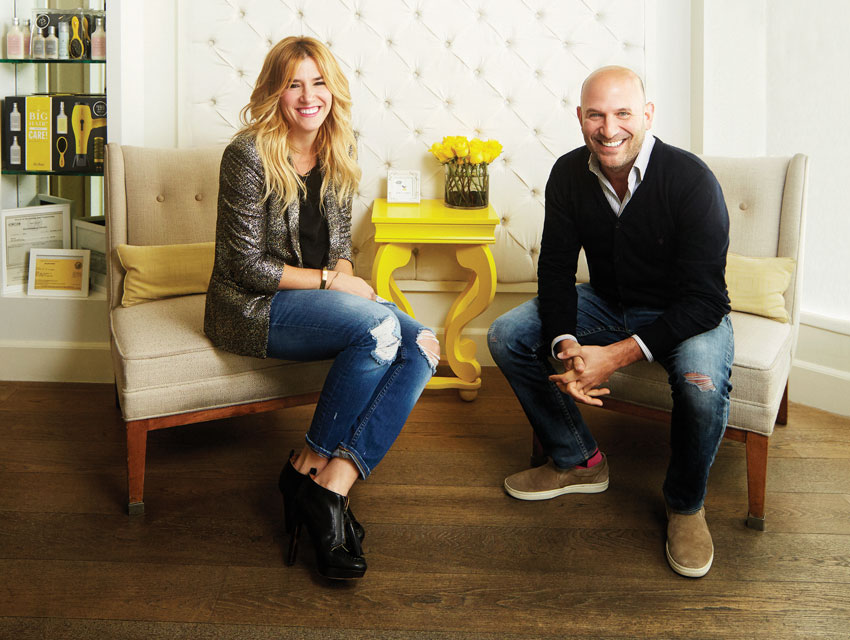
Like any business, there were bumps along the way. Since January 2020, every enterprise has been struggling with the COVID-19 crisis and Drybar is not an exception. While most Drybar salons are open in other states, its California locations remain shuttered, along with Squeeze’s one location. The current experience at open Drybar reflects the times: Customers must wait in their cars until their stylist is ready, the business is filling only every other chair, and everyone undergoes temperature checks. The business was designed to sell a high volume of blowouts every day, and that won’t be possible until the pandemic runs its course.
However, Webb has chosen to see the upside. She’s taken up running and yoga, and putting out content for Drybar customers that encourage them to do what makes them feel good and mentally healthy – and if that means doing their hair at home, she’s got plenty of tips for them. She’s taking a step back from the “treadmill” of productivity and taking time to really think about her next moves. Sometimes she even takes walks without her phone. She’s also focusing on homeschooling her two kids, and when asked if she has any advice for juggling that task with work, she laughs and says, “Headphones.”
Sharing about her biggest lesson learned at work, Webb said: “There are a lot, but I’d say some of the biggest lessons I’ve learned are to trust things will work out and to not let every single thing get to me. I’ve also learned to take the good with the bad. Nothing is ever going to be perfect.”
“There are going to be great days and terrible days. Embrace both!”
– Alli Webb, Founder at Drybar
In 2016, Alli Webb published her first book ‘The Drybar Guide to Good Hair for All’ which was written about blowout tips and tricks. “It’s everything I could think of in my brain that I’ve collected over the last 20 years, into a book,” she said. It’s a testament to the quality of Drybar’s service that Webb can sell every component of a blowout, plus a how-to book, and know clients will still spend $45 plus tip for, essentially, 45 minutes of expertly-applied hot air.
#6. An Inspiration for Women in Business
Alli Webb shared some advice for other women who hope to start their own businesses: “Recognize your strengths and bring in people who know things you don’t. It sounds simple, but my best advice is to know you can’t possibly do it all. You can’t be good at everything. You need help from people you respect and trust.” Every other Tuesday, she talks with self-made women entrepreneurs about the good, the bad, and the ugly of founding and funding a business.
According to the US Census, women entrepreneurs own approximately 20% of all employer businesses nationwide. But for those women who do start businesses, the First Round 10 Year Project found companies with female founders performed 63% better than those with all-male founding teams, in terms of return on investment.
Now it is a welcoming space for women entrepreneurs, where collaboration, consensus, and diversity rule. The number of female founders and owners has increased dramatically in recent years, and the impact of businesses with women at the helm is significant in terms of revenues and hiring.
Bottom Lines
Within a decade, the 45-year-old woman and her partners have turned a small side hustle into a multi-million dollar business that employs over 3,000 people. Today, the famous styling chain offering “no cuts, no color, just blowouts” comprises over 100 salons across the US and Canada. Her trajectory since then has been staggering by any measure, which is an example worth following in start-up.



